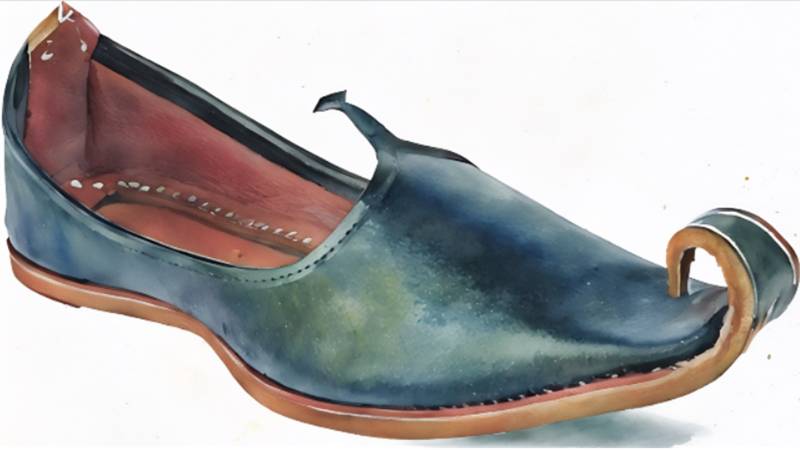
The tension between religious beliefs and scientific facts has always created a divide between diehard believers and those who worship at the altar of Newtonian physics and nothing else. It need not follow that course.
Pragmatists don’t reject either of them but follow a middle ground where science and religion could co-exist. Religion deals with beliefs and spirituality whereas science deals with the very makeup of the universe or metaverse. I don’t think they contradict each other.
A few years ago, a prominent imam, when asked about science, said that he puts science on the tip of his jooti (shoe). I was intrigued. Was he making such a sweeping statement out of ignorance or with some knowledge of science? From the way he dismissed all science out of hand, I concluded that he was saying that out of sheer ignorance. If he would have taken a moment to reflect, he would have realized that he is not only surrounded by science but he himself is immersed in science.
Let us see how his life would change dramatically if he would give up everything connected with science.
To begin with, he would not use an automobile to go to the mosque but walk. If the distance is not in walking range, then he would have to get a horse, a donkey or a camel for transportation.
In the mosque, he would not use a microphone but would have to shout at the top of his voice to be able to be heard. God forbid if it was Friday, and he had 500 congregants who could not hear his inspiring sermon. In medieval times, it must be remembered, mosques were built according to scientific acoustic principles where even a whisper could be heard by the worshipers.
How about the dress and accessories that the gentleman is wearing? Since watches and clocks are the inventions of science, he would have to remove clocks from the mosque and give away his wristwatch. And set aside his mobile phone.
The mysteries of nature and science are ours to explore and understand. Religion points towards that goal
Most likely, the fine cloth from which his clothes were made was not made on a desi loom but spun in a textile factory for which the machinery was imported from abroad. So just like his watch, his clothes would have to come off.
Since his socks were also made by the machinery invented by science. So, he must remove the socks as well.
Now we are down to his feet. Unless he is wearing a pair of khusas, the boat shaped shoes people wear in the countryside his shoes also must come off. Khusas are crafted by local cobblers whereas most other footwear are made in factories such as Bata and Servis.
Now, our anti-science man has shed his clothes, wristwatch, socks and he is standing only in his under wear. Should we also mention that that garment is also the product of science. But if he takes off his most intimate garment, he would be, as the cliché goes, buck naked.
In those circumstances I hope someone will bring him a langot made of home spun khader to cover his embellishments.
But wait, as we have already established, he can’t summon a car to take him home. He would have to find a beast of burden: horse, donkey, or a buffalo.
Oh yes, he would not dare use electricity also. After all, whether harnessed through water or sun, science made it possible for us. Now it will cause added difficulty. To search for candles will be an ordeal. But how to light them? The Matches are also manufactured by science- inspired machinery. Ditto for lighters. Now we are left with the option of vigorously rubbing two sticks to create a spark.
Devoid of his clothes, accessories, and denied of modern amenities he would be better off going to a remote rural area and proclaim himself جوتی کی نوک والی ننگی سرکار (Jutti Ki Noke Wali Nangi Sarkar).
There is a hilarious dream scene in Washington Irving’s delightful essay The Art of Book Making. The author goes into the inner sanctuary of British Library in London where researchers are busy copying notes from old classical tomes under the gaze of framed pictures of the same authors that the scholar are copying.
The author falls asleep and dreams that the authors have come down from their picture frames and are pulling the clothes off the researchers. Those researchers had stolen the clothes (wisdom) from the writers and had adorned themselves with someone else’s work. Irving starts to laugh uncontrollably and breaks the sanctified silence of the inner sanctum. A startled librarian escorts him out from the sanctum.
Our hapless religious man did not know that he had also adorned himself all over with science, but he was quick to dismiss science as heretical and God-less. He was quick to write off science as frivolous and anti-God. A taste of reality is always helpful to readjust the wayward ideas.
One of the recurrent themes in the Quran is to have the believers think, contemplate, and make sense of God’s signs (ayas) scattered all around them. The mysteries of nature and science are ours to explore and understand. Religion points towards that goal. Now if some of us are so turned off from using our intellect and brush off the clear guidance, it is not the fault of religion but ours.
As William Shakespeare said in Julius Caesar (I, II, 140-141
The fault, dear Brutus, is not in our stars,
But in ourselves, that we are underlings.

